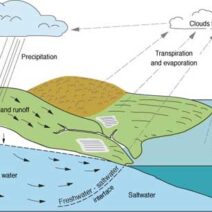Global warming, an ominous specter looming over our planet, continues to afflict humanity with an unsettling tenacity. As we traverse deeper into the 21st century, the ramifications of our insatiable appetite for fossil fuels and our refusal to pivot towards sustainability have become all too evident. We find ourselves akin to the proverbial frog in a pot of gradually heated water, lulled into complacency while the temperature rises incrementally. The question demands our attention: Why does global warming persist as a formidable challenge, and how will its ramifications shape the future of human civilization?
The phenomenon of global warming, fundamentally a consequence of the greenhouse effect, is characterized by the accumulation of greenhouse gases (GHGs) in the atmosphere. This atmospheric buildup acts like a thermal blanket, trapping solar radiation and in turn elevating global temperatures. While the science behind this is robust and irrefutable, the pernicious implications of rising temperatures often elude immediate comprehension. It is as if we are trapped in a labyrinth where each corridor reveals a new challenge, from extreme weather patterns to the inexorable rise of sea levels.
One of the most troubling aspects of global warming is its impact on natural ecosystems. As temperatures climb, the delicate equilibrium that sustains biodiversity is jeopardized. Species long adapted to specific climatic niches find themselves confronted with an unrelenting metamorphosis of their habitats. The Amazon rainforest, often dubbed the lungs of our planet, experiences intensified droughts and wildfires, compromising its ability to sequester carbon. Coral reefs, those vibrant underwater cities, are succumbing to bleaching events induced by ocean warming. Each loss of biodiversity does not just represent a tragic diminishment of beauty; it signals a disruption of essential ecological services that humanity relies on for clean air, water, and food security.
Moreover, the consequences of global warming are not confined to the natural world; they ripple through human societies. The increased frequency of extreme weather events—hurricanes, floods, heatwaves—serves as a constant reminder that climate change does not discriminate; it is an equal-opportunity adversary. In the United States alone, natural disasters have been escalating in both frequency and financial toll. Communities already grappling with poverty find themselves disproportionately affected, rendering climate change a formidable social justice issue. Thus, the narrative of global warming morphs into one of mounting inequity, as the vulnerable populace bears the brunt of ecological collapse.
Furthermore, as the atmosphere warms, the planet’s weather patterns become increasingly capricious and unpredictable. Farmers, whose livelihoods depend on stability, face a Sisyphean task of adapting to uncertain rainfall and shifting seasons. Crop failures fueled by drought or deluge threaten to destabilize food security across the globe. This upheaval elicits a poignant inquiry: Are we prepared to confront a future fraught with famine and conflict over dwindling resources? The interconnection between climate change and geopolitical tensions becomes ever clearer, as nations grapple for water rights and arable land in a relentlessly warming world.
The economic repercussions of global warming are equally stark. As industries adapt to climate-related disruptions, costs proliferate. The insurance sector faces a watershed moment, with liabilities from climate-related disasters spiraling out of control. Coastal regions, once bastions of prosperity, may become ghost towns as rising sea levels render them uninhabitable. The necessary transition to a sustainable economy, while daunting, offers a glimmer of hope. Renewable energy sources—solar, wind, hydro—promote not just ecological preservation but also economic resilience. However, there exists a palpable inertia among policymakers and industries reluctant to embrace this change, often grounded in fear of immediate financial loss over long-term gain.
The urgency of addressing global warming cannot be overstated. Nearly every facet of human existence hangs precariously in the balance. Advancing technologies in carbon capture and storage, and the transition to clean energy must happen swiftly and decisively. International collaborations, chiefly illustrated by the Paris Agreement, illuminate the path forward. Yet, without unwavering commitment from governments, corporations, and individuals alike, these grand alliances may merely remain words on a page, devoid of meaningful action.
As we contemplate the omnipotent forces shaping our present and future, the metaphor of the spaceship Earth rings true. It is a vessel encumbered by the weight of human folly. While humanity possesses the ingenuity to innovate and adapt, we must collectively steer the ship away from the precipice. Engaging in open discourse about climate change, not shying away from the discomfort it evokes, is essential for galvanizing action. Each voice counts, whether mobilizing communities for local initiatives or advocating for sweeping legislative reforms.
In conclusion, global warming remains a profound challenge due to its multifaceted repercussions on our environment, economies, and social fabrics. It is a behemoth that demands not just recognition but also unprecedented action. The future of humanity hinges upon our ability to unite, innovate, and cultivate a climate-conscious society. As we stand on the brink of irreversible impacts, let us abandon the inertia of complacency and embark on a collective journey towards resilience and sustainability. The stakes have never been higher, and the time for action is now.


